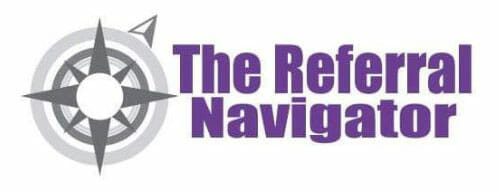In the competitive landscape of the legal industry, law firms are continually seeking effective strategies to attract and retain clients. While traditional marketing methods can be expensive and yield unpredictable results, referral-based business development is a powerful and cost-efficient approach that can provide a steady stream of high-quality leads. However, a successful referral strategy is not just about asking for referrals; it’s about building deep and meaningful relationships with clients and professional contacts. In this comprehensive guide, we will explore some ideas and provide you with knowledge and tools to harness the power of referrals.
The “Why” of Referral-Based Business Development for Law Firms
Before delving into the mechanics of referral-based business development, it’s essential to grasp why this strategy is crucial for law firms. According to the Clio Legal Trends Report, from a sample size of 2,000 consumers, 59% of clients take a recommendation from someone they know when looking for a lawyer. Referrals are not just a supplementary source of clients; they are a primary method for people to choose legal services. Let’s explore the key benefits of referrals for law firms:
1. Building Trust and Credibility:
Referrals come from trusted sources, such as satisfied clients or respected professionals. When someone you know and trust recommends a law firm, it instills confidence and credibility in potential clients. In the legal realm, trust is paramount. Clients want to know they can rely on their attorney when they face complex challenges in their lives and businesses.
By understanding your client’s strengths, goals, concerns, and action plans, you can tailor your legal services to meet their needs and build trust more effectively. Some legal matters can be highly personal and emotionally charged, making it essential for potential clients to hire a law firm recommended by someone they know or trust. Trust can be challenging to establish through traditional advertising alone.
2. Increasing Client Base:
Referrals tend to have higher conversion rates compared to other marketing channels. When someone is referred to your firm, they are often pre-qualified and have a higher likelihood of becoming a client. Clients who come through referrals are more likely to stay loyal and refer others in turn, creating a sustainable network of business.
Moreover, referrals can introduce your firm to a more diverse client base. Your network includes people from various backgrounds and industries, expanding the scope of potential clients. By harnessing the power of word-of-mouth, you’ll have a team of satisfied clients spreading the good word about your legal prowess.
3. Cutting Down on Marketing Costs:
Traditional marketing methods often require significant resources to reach your target audience. In contrast, referral-based business development is more cost-effective since it relies on existing relationships rather than paid advertising campaigns.
4. Cultivating Long-Term Client Relationships:
Developing strong relationships with peers and professionals can lead to more referrals from other law firms. These referrals often come from established and respected sources. Referred clients are more likely to become long-term clients, leading to repeat business and positive word-of-mouth recommendations.
In the legal world, reputation is everything. Referrals can take your good name to new heights. When people hear about your firm through trusted sources, it automatically enhances your reputation in the legal community.
The “How” of Referral-Based Business Development for Law Firms
1. Capture Comprehensive Information:
In addition to understanding your client’s legal needs, it’s crucial to capture a wide range of information about their personal lives. This goes beyond the standard case details and dives deep into their aspirations, hobbies, interests, opinions, and even their personality. The more you understand about what matters to your clients, the better you can tailor your services and build trust.
Going beyond the legal scope allows you to make a personal connection with your clients. You become more than just their attorney; you become their trusted advisor. By knowing their strengths, goals, concerns, and action plans, you can provide personalized solutions that address their unique needs, beyond the scope of your legal work. This level of personalization can set you apart in the competitive legal industry.
2. Get to Know Their Network:
Understanding the people and groups of people who matter to your clients is another vital aspect of generating effective referral. These individuals may not be directly related to their legal needs, but they are significant in their lives. By taking the time to get to know these people, you can create a stronger, wider network and be in a better position to provide valuable introductions.
Consider the power of knowing who your clients know. The wise owl asks “Who?” By understanding the names and roles of the people in their lives, you can facilitate introductions that are not only relevant but also impactful. It’s not just about knowing your clients; it’s about knowing the people they trust and value. Sharing names of people who are important to you, what you like about those people, and what those people like about you will open up your client to doing the same with you when you ask. If you ask without sharing yourself, you run the risk of making this one-sided conversation less comfortable.
Allowing your client to express their own strengths while telling you specific names will also make them more comfortable to share. You can also make the questions contextual, based on things you already know about them. For example, if you know your client plays golf you might ask “who is someone you play with and what do they like about your game?”
By capturing information about the people and groups that matter to your clients in your contact database, you can create a strong tool to help you prepare for a conversation with a referral source. If you can reference the people who matter to your clients by name, you can deepen and widen the relationship, trust and mutual respect with your client.
3. Discovering Their Motivation and Justification to Refer:
Effective referral marketing is not just about knowing who to ask for referrals; it’s about understanding why people would want to refer you. Every client has unique motivations for making referrals, and it’s your job to tap into those motivations.
Motivation is the driving force behind referrals. Some people may refer others because they seek financial gain, while others may do it for recognition, introductions, or personal satisfaction. Understanding the motivations of your clients is essential because it enables you to tailor your approach to their specific needs.
The client’s personality style also plays a significant role in their motivation to refer. An amiable referral source wants to feel safe, an expressive source seeks recognition, a driver source craves control, and an analytic source focuses on making the right decisions. Recognizing these differences is crucial in understanding what motivates each individual to make referrals.
You can tell your client a story about how another client faced a risk as a referral source when referring you to a person who mattered in their life, how you helped the referral with your service and the benefit the client received, and finish the story with some tangible or intangible benefit the referral source got from you or the referral. After you tell the story you can ask your client about what motivates them to refer people or what benefit they hope to get as a referral source. You can also ask what would be the top few reasons that justify a new prospective client hiring you. That justification is like a testimonial that helps you know what your client thinks about the value you provide. Capture notes in your database about their motivation and justification, preferably using their own words, and you can use those notes later to ask for referrals in a more customized way.
4. Create a Structured Referral Program:
A structured referral program can help you systematically generate referrals from clients, colleagues, and other professionals. Develop a formal referral program that outlines the strategy, steps to follow, questions to ask, stories to share, notes to take and systematic ways to follow through with clients and past clients to generate more introductions and referrals.
Start by clarifying the objectives of your referral program. What do you want to achieve? This could include a certain number of referrals per month, the acquisition of new clients in specific practice areas, or a percentage increase in referral-generated revenue. Determine who can be potential sources of referrals and rank those referral sources in your database based on the amount of time and effort you want to invest into each person as a referral source. This may include current clients, past clients, colleagues in your practice area or related fields, or even individuals in your social and professional networks.
Ensure your clients understand the referral process and feel comfortable referring others to your firm. This adds professionalism and clarity to the referral process. Consider offering incentives for referrals, but ensure they comply with ethical guidelines and regulations.
5. Utilize Online Platforms:
In this age of technology, you must pay attention to the power of online platforms. Show the world that you’re a reputable law firm worth referring to.
Your website or social media presence is often an important point of contact for potential clients who are referred to you. Even if they first hear about you from a person they will often still check you out online before working with you. Ensure your website and social media profiles are professional, easy to navigate, and contain informative content about your legal services, expertise, and success stories. Maintain an active blog on your website. Regularly publish articles and updates that showcase your knowledge in various legal areas. Your blog can be a valuable resource for clients and other legal professionals, which can increase your credibility.
Engage in social media marketing. Create profiles on platforms like LinkedIn, Twitter, and Facebook, and actively share relevant legal articles, updates, and insights. Social media can help you connect with a broader audience, including colleagues and professionals who may refer clients to your firm.
Online client reviews on platforms like Google My Business, Yelp, and Avvo can significantly influence potential clients. Encourage satisfied clients to leave reviews, and make sure to respond professionally to negative reviews. Monitor your online reputation and address any issues promptly.
Summary of Referral-Based Business Development Strategy
In conclusion, referral-based business development is a powerful strategy that can help law firms grow their client base, build trust and credibility, reduce marketing costs, and cultivate long-term client relationships. To succeed in referral marketing, it’s important to go beyond simply asking for referrals. You should capture comprehensive information about your clients, get to know their network and understand their motivations for making referrals. Additionally, consider creating a structured referral program and utilizing online platforms to enhance your firm’s online presence and reputation. By mastering these aspects, law firms can unlock the full potential of referral marketing and enjoy sustained growth and success in a competitive legal landscape.






